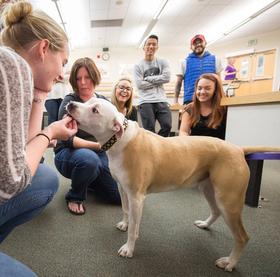The trend in the United States has gradually been moving from placing elderly patients in hospitals and long-term care facilities to allowing them to stay in their homes and communities for as long as possible. To achieve that goal, the role of the home caregiver has also expanded, with more need for these trained professionals than ever before. Home caregivers make regular trips to the homes of patients to help them live independently for as long as possible. While training for qualified caregivers has not kept up with demand, new training programs are cropping up at community colleges around the country to get more professionals into this rewarding career.
Jobs for Caregivers
According to the U.S. Bureau of Labor Statistics, job growth for home caregivers and health aides is expected to increase exponentially as the demand for these professionals rises. Many caregivers work part-time evenings and weekends, while others find full-time employment. Some of the duties of a home caregiver might include:
- Working with elderly or physically or mentally disabled patients to help them live independently
- Helping patients recently discharged from hospitals as they recover from illness, injury or surgery
- Providing psychological support and instruction to patients they visit
- Performing light housekeeping duties like changing linens and cooking meals
- Checking a patient's vital signs and keeping a record of the results for doctors
- Assisting patients with basic functions like bathing, grooming or dressing
Because many home caregivers must help patients get in and out of bed or get around their homes, the job can be physically demanding at times. However, people who enjoy working with others and are interested in the health care industry might find the job of a home caregiver is the perfect choice for them.
This video from John Hopkins University explains what caregiving is.
Education and Training
The training requirements for home caregivers vary from state to state. Persons interested in this profession will need to check with the state where they live to find out about minimum training and licensing or certification requirements. Most home caregivers must pass a background check to become employed by a company that offers home care services. As the need for qualified caregivers continues to increase, it is possible that more focus will be placed on how to properly train individuals for the job. This is where community colleges come in to fill the void.
Great Bay Community College is just one of the institutions across the country that is opening the door to home caregiver career opportunities. According to a recent article at Fosters.com, this school is launching a 40-hour certificate program to train home caregivers to work in either elderly or disability care. Course offerings will include subjects like infection control, fall prevention and monitoring vital signs. The courses begin this month at the Great Bay campus in New Hampshire and will meet two evenings a week for approximately seven weeks.
Another college offering home caregiver training is Gateway Community College in Arizona. This community college features a full Caregiver program that works with the Center for Workforce Transition, according to the college website. The program is available both to volunteer caregivers and those who would like to find a new career in the health care field. The program includes courses like First Aid and CPR, Physical Disabilities and Dementia. Students will learn how to care for patients with a variety of mental and physical disorders right in their homes.
This video describes the caregiving program at Gateway Community College.
This Midwestern community college also offers a training program for students interested in the Home Health Caregiver field. According to the St. Lous Community College website, the program provides 90 hours of instruction that includes classroom instruction, labs, and field training. The content of the program incorporates hygiene, home safety, and documentation, as well as communication with families, abuse and neglect reporting and psycho-social aspects of aging to produce well-rounded caregivers. Students may be required to secure their own clinical or field experience as part of the program.
Going National
Because the need for home caregivers is expected to be great in the next few years, a national movement is also underway to bring caregiver training to more community colleges. Dubbed the Caregiving Project for Older Americans, the organization's website cites the need for well-trained caregiver professionals and support for such an endeavor. Working with MetLife Foundation, the Caregiver Training Initiative was created by the International Longevity Center to provide support training programs at community colleges. This program is in its third year and has currently supported 36 training programs geared toward in-home caregivers and family caregivers.
According to a brief on the ILC website, this program was launched because, "community college caregiver programs, such as those sponsored by the CTI, have the potential to play a key role in the effort to keep elders in the community longer." The report states that Medicaid, which is the primary payer of long-term care, is increasingly looking at ways to keep patients in their homes longer, and other health care professionals and programs are following suit. This organization hopes to help meet the need for more certified and trained caregivers in the community at large.
This video describes caregiving for older Americans.
Caregiving was once left to family members but is now often handled by professionals who are trained to deal with a variety of physical and mental conditions. If you have a passion for working with others and are interested in moving into the health care industry, perhaps a career as a home caregiver is the right choice for you.
Questions? Contact us on Facebook. @communitycollegereview















